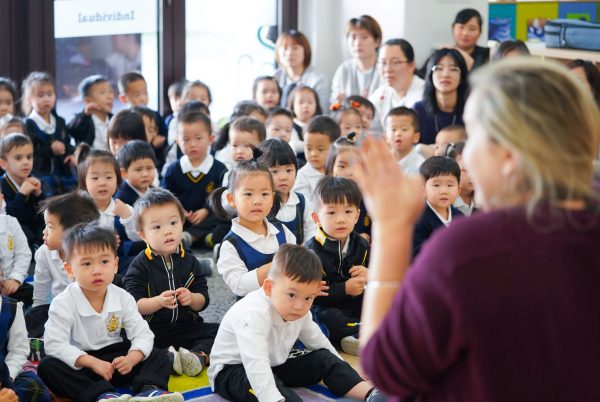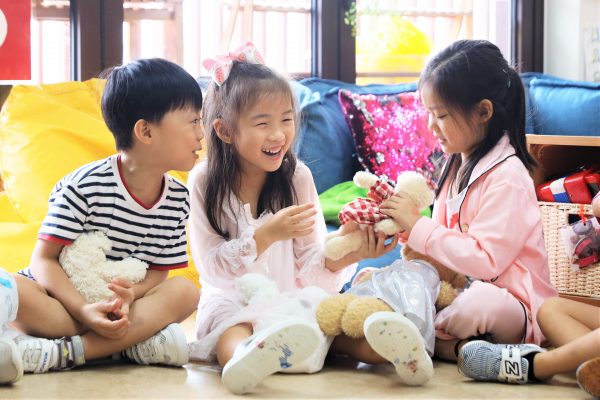The first time a child attends nursery is a great success for them because the nursery community marks their first step into society. They must leave their familiar adults and environment to enter an unknown small world. Children’s adaptability varies considering that they have diverse personalities, habits and parenting.
Young children depend on their parents a lot, which makes them feel both excited lacking in security at the same time when they adjust to a new environment. They become anxious whenever they realise that they will separate from their parents when they initially go to the nursery. Some children cry and do not want to leave their parents who drop them off in the classroom in the morning. Some children may lose their temper when they have meals or nap time. Some children silently sit in the classroom, refusing to talk to others. Thus, parents can accompany them for a short time at the nursery at the beginning of the transition period and gradually reduce this need over time. For certain, some children will have a strong adaptive capacity to settle into life at nursery quickly and actively tell their parents what is going on in their daytime.

If children have an emotional wobble when they go to the nursery, parents also will be affected and worried. In order to help children transition into the new environment, parents need to have a positive attitude and use compassionate and gentle communication skills to talk with their children. Some parents are afraid that their children are not well cared for and may ask them: “Did you cry today? How long did your cry last?” or “Did you have snack today?” In fact, we need to treat children as an independent individual, trust their potential and give them the freedom to grow.

For example, a child is reluctant to go to the classroom in the morning, his mum may comfort him and say: “I will pick you up in the afternoon and will look forward to hearing your stories about the nursery and your favourite part of the day.” Thus, the child’s focus is shifted to other things, which can support him to stop crying. In another situation, parents may be worried and constantly return to the classroom to check whether their child is settled. Children do notice that their parents worry about them and find it harder to adjust to a new environment. Under such circumstance, parents play an important role in alleviating children’s anxiety to better help them to settle into the nursery by modelling courage and trust.
When pupils begin their life at the nursery, they will observe many changes, for example, toys need to be shared with classmates and do not belong only to them. They do many daily routines together with their classmates: attending classes to sing or tell stories, playing on the slides in the outdoor play area, having lunch meals or taking a noon nap. The fellowship plays an important role in their current developmental stage, for they like to imitate others.
For example, if a child takes the lead to share the toy with others when other children are scrambling for this toy, then, influenced by this child, other children will learn to share. Additionally, children will gradually develop the habit to collect toys each time when their play time is over. They will also give a hand to their peers in need, for example, holding other children’s hands or handing them tissue when they cry.

Each day, under the encouragement of their teachers, children will try to change their shoes, dine independently, queue up and actively share their thoughts and ideas with classmates and teachers. They even are willing to try things that they mightnever do in their home, such as clearing up, washing small items of clothing, colouring the carton, watering the plants, etc. This is because collective life gives them more opportunities to interact and communicate with others, which contributes to their personal, social, language and independence development.
After a period of time, parents will be aware that their children have become more independent, who are no longer afraid to meet unfamiliar people and proactively share what happened at the nursery. To parents’ surprise, after vacations and breaks from the nursery, children are eager to return because they feel bored at home. This is the result of children accepting the new environment and making many close friends here. Parents are better to continue what we do in the nursery and encourage children to do things like walking by themselves, tidying up their backpacks and changing their shoes when they go to the nursey or back home. Children should be motivated to do what they are able to do at home.
At nursey, we help pupils to transition into their nursery life smoothly, effectively and pleasantly by creating an interactive environment, instilling diverse concepts and professional guidance. Parents should believe in their children while giving them freedom to thrive confidently, independently and healthily. This will better promote their personal, social and emotional development.



